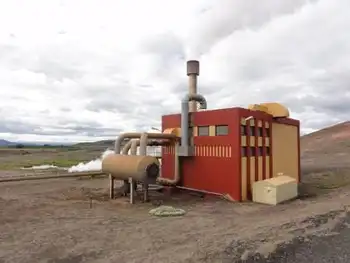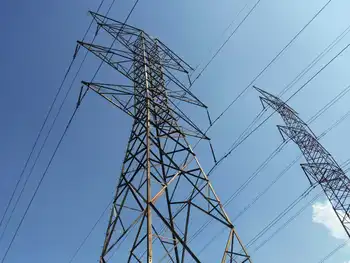Little things count in energy use
By Knoxville News Sentinel
Electrical Testing & Commissioning of Power Systems
Our customized live online or in‑person group training can be delivered to your staff at your location.

- Live Online
- 12 hours Instructor-led
- Group Training Available
I've been writing a lot on the subject lately, covering local projects aimed at reducing, in big chunks, the need for power by revamping the way buildings are constructed and conditioned and relying on new technologies energized by renewable fuels such as the sun. But for the average person with little time to spend thinking about and little money to spend investing in major improvements to their home or business, the whole notion can seem pretty daunting.
But it doesn't take much energy savings to make a big difference, according to a study that's part of a series of reports being developed by Georgia Technical Institute, Oak Ridge National Laboratory and others. The studies are focused on the potential for energy savings and renewable energy generation in the south, an area known for using more energy per capita than other regions and producing much of it from coal.
According to the study, power consumption in Tennessee breaks down to one-third residential, one-third industrial and one-third commercial usage. In order to keep from building any new power plants, Tennessee homes and businesses need to reduce their energy consumption 9.5 percent by 2030. Given the projected growth in that time, those measures essentially would ensure that the state's power demand remains flat through that period, said Marilyn Brown, former ORNL researcher now with the Georgia Institute of Technology's School of Public Policy.
"The energy (demand) in Tennessee is forecasted to grow 1 percent per year," she said. "That's a level at which we can cut back without any sacrifice."
Some states, like California, choose to take on the responsibility themselves by regulating industry. For instance, the state recently passed a law that would require televisions sold in California to use 50 percent less energy by January 2013. States have also moved to tighten building codes and encourage industry to make changes to their processes and power usage.
States such as Vermont and New York offer incentives to state residents to improve efficiency.
"They don't take the regulatory approach as much as California does, they just have really great programs that offer rebates and subsidies to consumers who purchase new equipment," she said. The states have also developed networks of contractors certified to do energy efficient work.
"That's a very big issue," Brown said. "Throughout the South we don't have that trained work force."
But even without encouragement from the government, annually curbing 1 percent of electricity usage is achievable goal, she said.
Replacing incandescent bulbs with compact fluorescent ones, installing smart power strips that automatically cut electricity to electronics when turned off and replacing old appliances, such as heating units, with newer efficient models — with the help of federal tax credits currently available for such upgrades — will easily get you there, she said.
"What I'm talking about is modest - it does seem so easy as to be unexciting," she said. "But if everybody did it we'd need no more power plants."











